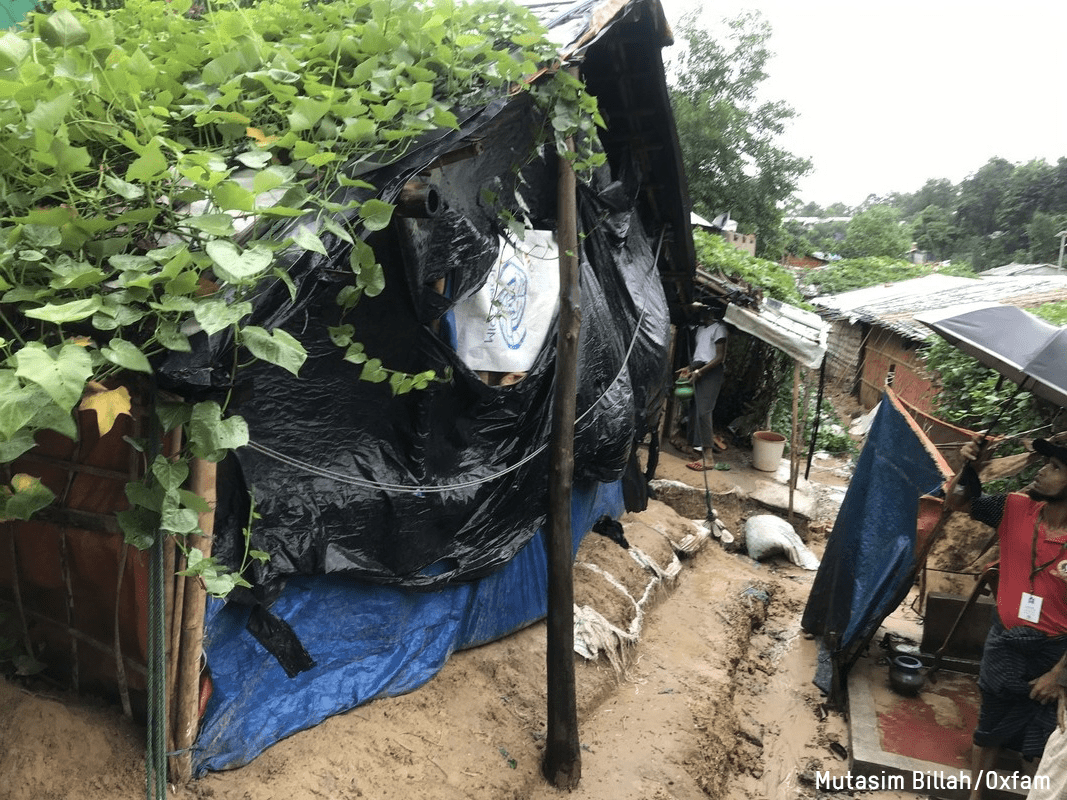At least five people were killed in the Cox’s Bazar Rohingya camps today, as the monsoon floods that hit Southern Bangladesh earlier this month caused severe landslides and left a trail of destruction. Oxfam is mounting a response to address the immediate needs of the most affected people.
“Nearly 300,000 people across 60 union parishads in Cox’s Bazar have been impacted and thousands have been displaced. The monsoon floods lent another hard blow to hundreds of thousands of refugees already recovering from the fury and destruction of Cyclone Mocha last May,” said Ashish Damle, Oxfam in Bangladesh Country Director.
Oxfam staff tell how in the Ukhiya camp-09, one mother and her one-year-old daughter were washed away by the landslide. In Bandarban, Chattogram region, 30,000 people were stranded, and hundreds lost their homes due to landslides.
“People most urgently need food, cash and temporary shelters. They also need essential supplies for children, hygiene kits, raincoats and torchlights. Oxfam, together with our partners, are scaling up response to ensure those most affected receive the support they desperately need. But the heavy rains have also impacted essential infrastructure making our operations challenging”, said Damle.
For media inquiries and further information, please contact:
Rachel Schaevitz, Communications Manager, Oxfam Aotearoa






